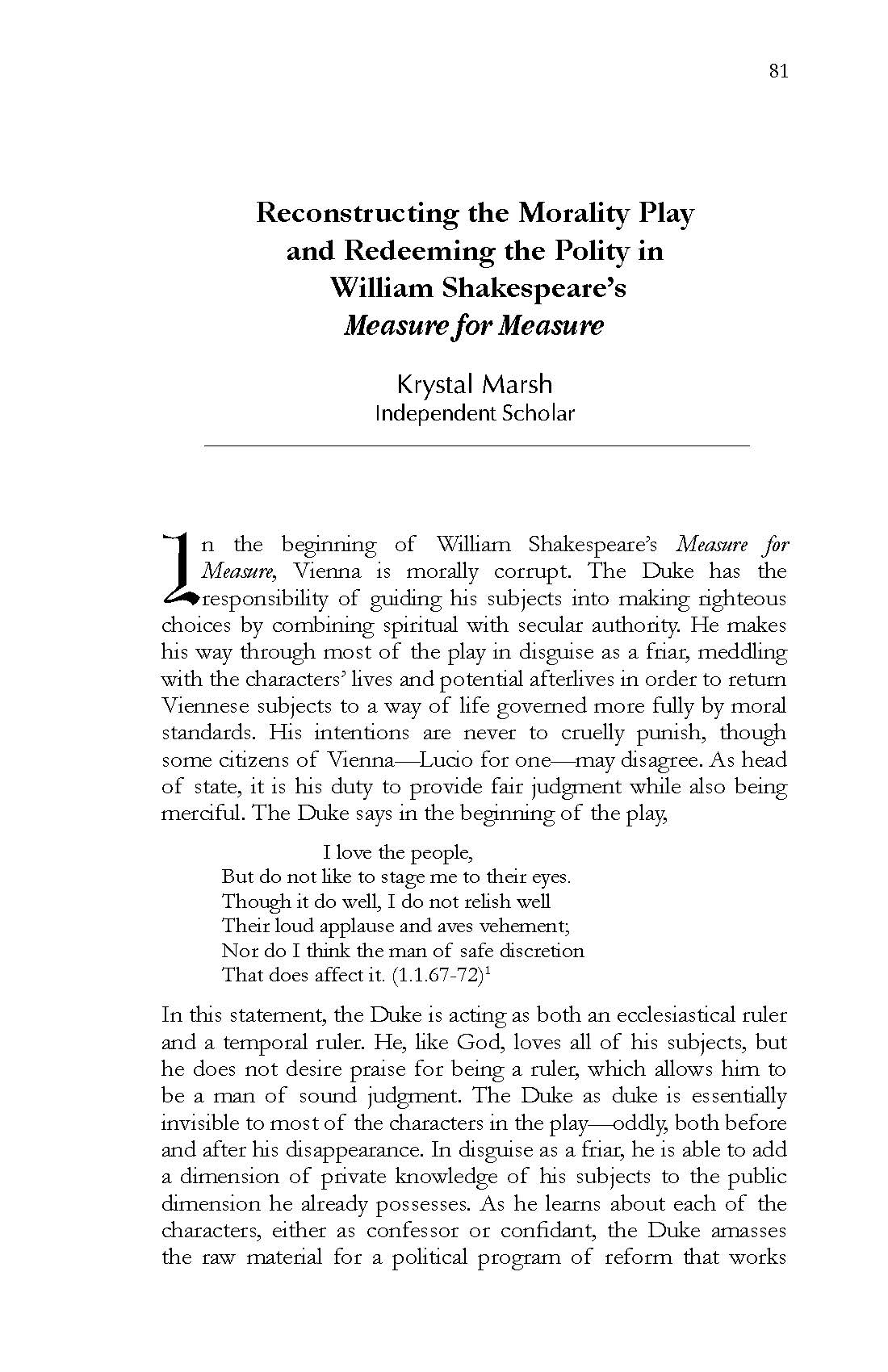Reconstructing the Morality Play and Redeeming the Polity in William Shakespeare’s Measure for Measure
Main Article Content
Abstract
In the beginning of William Shakespeare’s Measure for Measure, Vienna is morally corrupt. The Duke has the responsibility of guiding his subjects into making righteous choices by combining spiritual with secular authority. He makes his way through most of the play in disguise as a friar, meddling with the characters’ lives and potential afterlives in order to return Viennese subjects to a way of life governed more fully by moral standards. His intentions are never to cruelly punish, though some citizens of Vienna—Lucio for one—may disagree. As head of state, it is his duty to provide fair judgment while also being merciful. The Duke says in the beginning of the play,
I love the people,
But do not like to stage me to their eyes.
Though it do well, I do not relish well
Their loud applause and aves vehement;
Nor do I think the man of safe discretion
That does affect it. (1.1.67-72)1
